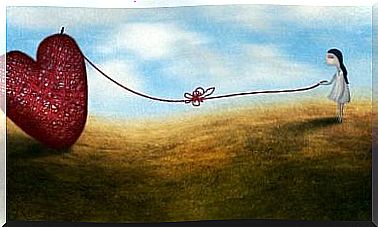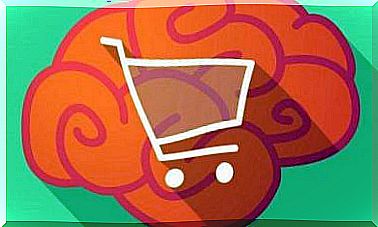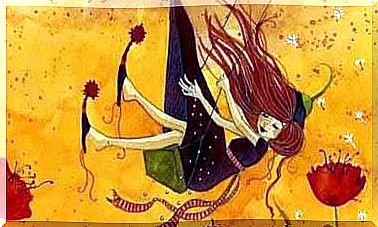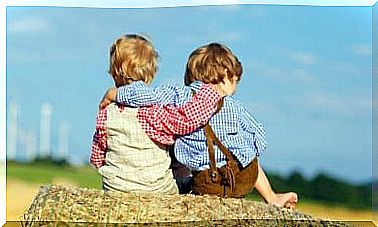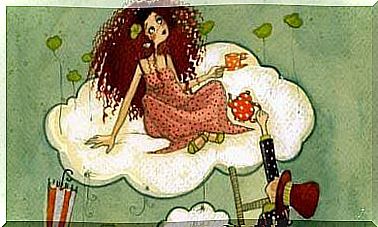The Effects Of Domestic Violence On Children
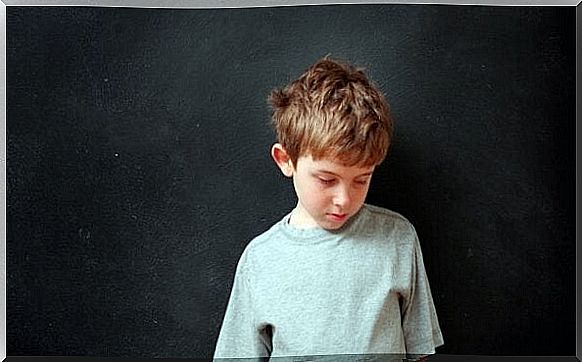
Fortunately, our awareness of the myriad horrific consequences of domestic violence is growing. Experts point out the physical injuries — and even the risk of death — that many women suffer every day. We also know that physical abuse isn’t the only thing that hurts.
Psychological harm is another consequence of abuse. This also does not only apply to the victim. It is important to remember that children also suffer from domestic violence within the family.
They are the silent witnesses of a violent, out of control situation. Children often end up feeling incredibly guilty about what is happening. But how does it affect them on a psychological level?
Violence in the home: the consequences for attachment
Newborn children have a whole range of basic needs. Some of these are protection, parental love, stability and socialization. When these needs are met adequately and regularly, they learn to trust in the love of their parents. They also learn to believe that they deserve it.
In situations where one parent abuses the other, children and their needs become very vulnerable. It is very difficult for a child to feel safe in such an environment. They are also unlikely to trust their parents to take care of them. The adults are usually not emotionally available or able to love their children as they deserve. They are only sources of negative feelings and emotions.
Parents should provide their children with a safe space. They should be a refuge when their children need it. Their sons and daughters should see them as a safe starting point to step outside and explore the world.
But what actually happens in situations where violence occurs in the home is that they pass on their fears to their children. Children watch their parents get scared in their own home. They cry and scream and are inconsolable.
This has a significant impact on the bond between children and their parents. In these hurtful situations, children typically form relationships with their parents based on insecurity and avoidance. In addition, abused mothers may view their children in a negative light and consider themselves bad mothers. Sometimes this results in postpartum depression.
How does domestic violence affect a child’s development?
Violence in the home not only hinders the development of a secure attachment between parent and child (which is crucial for the child’s well-being). It also has its consequences for the normal psychological development of the child. You may well imagine that early exposure to abuse has a major impact on their social and emotional well-being.
They may also develop problems recognizing and controlling their emotions. Children often feel responsible for the situation they are in. They can also develop anxiety (disorders), even if they themselves do not understand what they are feeling and why. They then try to suppress the negative emotions, eventually turning them into a chronic problem.
Experts have also identified significant self-esteem and self-esteem issues in children who experience domestic violence. There may also be behavioral and socialization problems. They may find it difficult to compare themselves to their peers and other adults.
Domestic violence and post-traumatic stress disorder in children
Children exposed to abuse within the family may later develop post-traumatic stress disorder. Even though the child in this case is not the direct victims, they are though in immediately. You may be wondering what PTSD looks like in children. Like many other health problems—both physical and mental—the symptoms are not quite the same. The diseases manifest themselves in different ways in adults and children.
For example, psychologists see that children who are exposed to domestic violence often experience flashbacks to the traumatic events. It may happen that they are playing and something suddenly triggers memories of their experiences. They may have nightmares, experience flashbacks, or even moments of dissociation.
Children from homes like the ones we discussed above may be hesitant to take on responsibilities. In other words, they are socially distancing. They may forget skills they’ve already learned, don’t play as much as before, and are generally not social (anymore).
Finally , children who experience domestic violence are likely to become anxious. Because of this, they may have trouble with things like falling asleep and tasks that require concentration. They may appear hyper-alert and react particularly strongly to external stimuli (such as sounds or touch).
Search for help
In conclusion, it can be said that it is vital to a child’s well-being to ensure that they enter therapy with a qualified psychologist. Living with indirect abuse can be extremely detrimental to children. Let’s help them find the help they need to grow into healthy, happy adults.
The photos used are the property of Peter Forster and Elijah Henderson.
